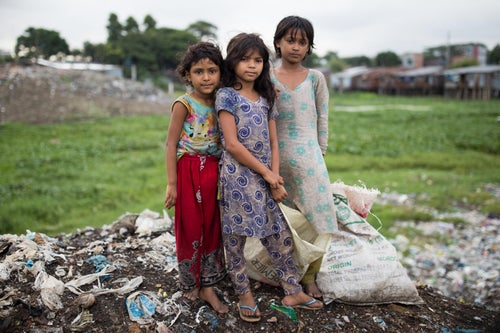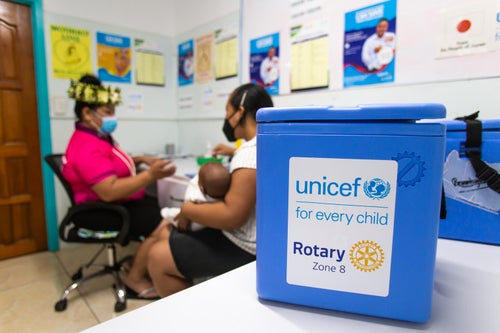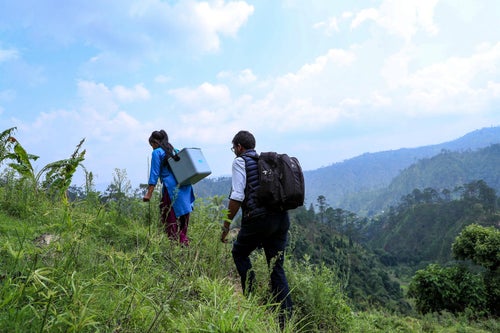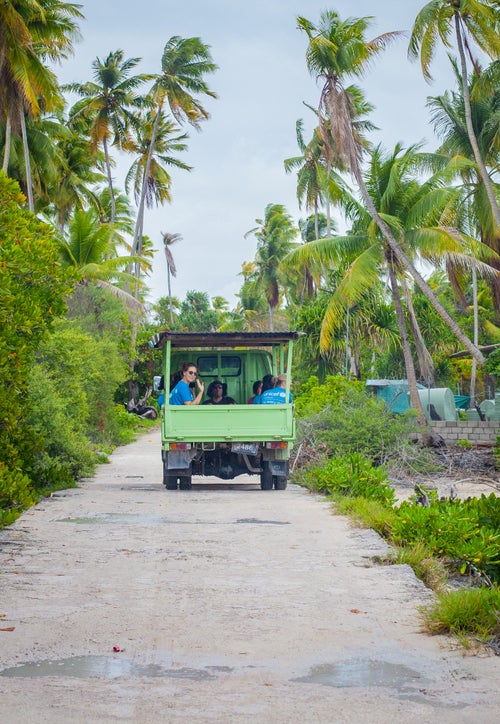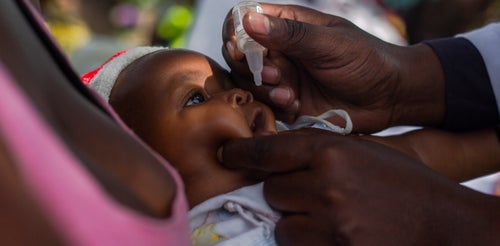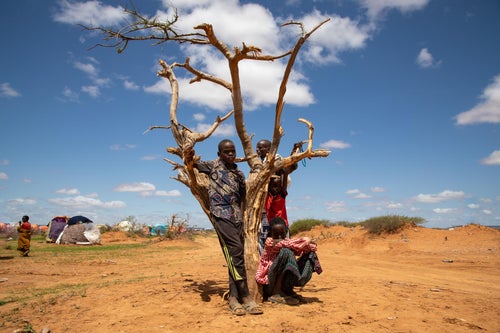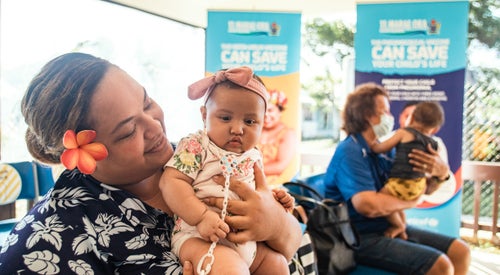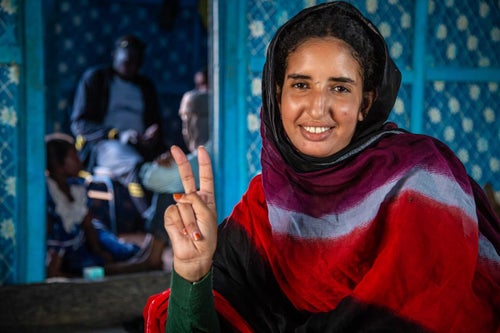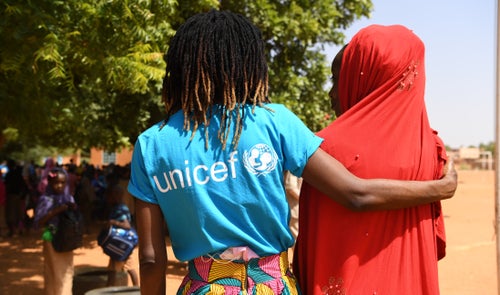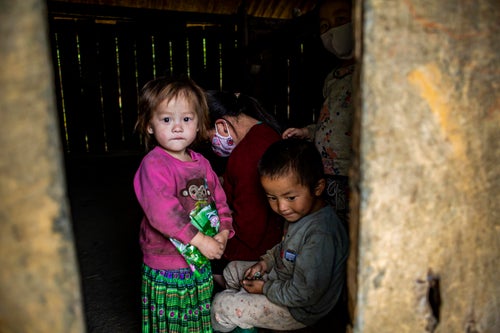Mama Bwanga knows what it feels like to lose a child.
“The children were growing up fine, then we lost them in an instant to illness,” says Bwanga. “It was my four-year-old daughter, Mireille, who fell sick first. I had never heard of measles before.”
Bwanga recalls her horror as the little girl was wracked by an intense fever while a rash spread across much of her body.
“We took her to a local clinic, a private one, and they gave her some medicine. But after a few days, she died.”
By then, her 21-month-old son, Prince, was also ill, suffering from the same soaring temperature and scarlet rash as his sister.
In a panic, Bwanga and her husband rushed the boy to a different, larger clinic, where more services were available. But the couple were unable to pay the fees the clinic required, and were turned away. Prince died on the way home.
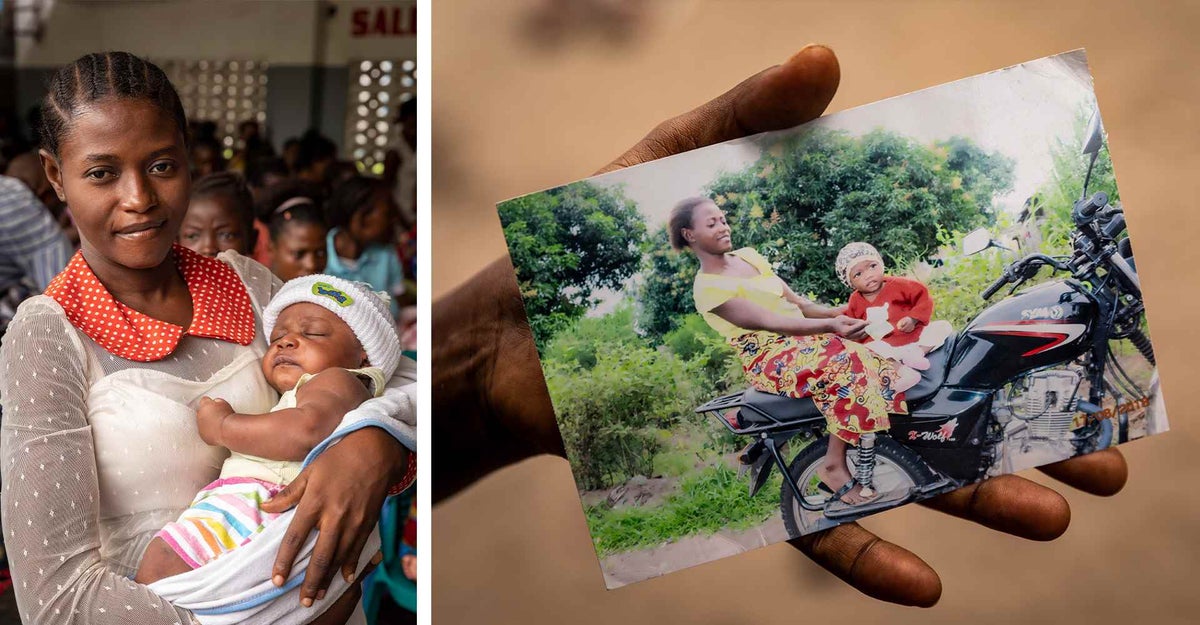
"The children were growing up fine, then we lost them in an instant to illness."
Mama Bwanga lives in the Nsele district of the Democratic Republic of Congo (DRC). It was 2019 and the country's worst ever measles outbreak was taking children's lives. More than 70 per cent of cases were among children aged five years or younger.
Life is already difficult in the DRC, even without the threat of measles. The country is crippled by
ongoing armed conflict. There is very little working health infrastructure. Poverty is widespread and malnutrition makes children even more vulnerable to disease.
This year, the DRC has so far recorded more than 5,000 suspected measles cases.
Around the world, measles remain a leading cause of death of children under five years old. Even before the COVID-19 outbreak, measles infections were on the rise.
Lockdowns and overwhelmed health systems have disrupted child vaccination programs around the world. Measles campaigns are the most impacted, with disruptions affecting an estimated 140 million people. Many campaigns have been delayed for over a year.
Donate Where the Need is Greatest
Help UNICEF to be there for children wherever the need is greatest, no matter what.
For every child, health
As the largest single vaccine buyer in the world, UNICEF has more than 70 years of experience in vaccinating children against disease. Our frontline workers climb mountains, cross rivers and walk miles to reach every child.
Each year, we vaccinate almost half of the world’s children against deadly diseases.
To protect children from the highly contagious measles, two doses of the vaccine is needed. But getting both doses is difficult for families living with poverty or in rural areas.
“My husband is a teacher and a farmer. We lacked money and information about the measles vaccine. If I knew more about the different types of vaccines, they wouldn’t have died,” says Bwanga.
“My one-year-old, he was so smart. To get over the pain, you talk to people, but as memories appear, tears fall.”
And now COVID-19 is making vaccination programs even more difficult. New data shows that 60 life-saving vaccination campaigns are currently postponed in 50 countries.
That’s putting millions of children at risk of deadly diseases like, measles, polio and yellow fever.
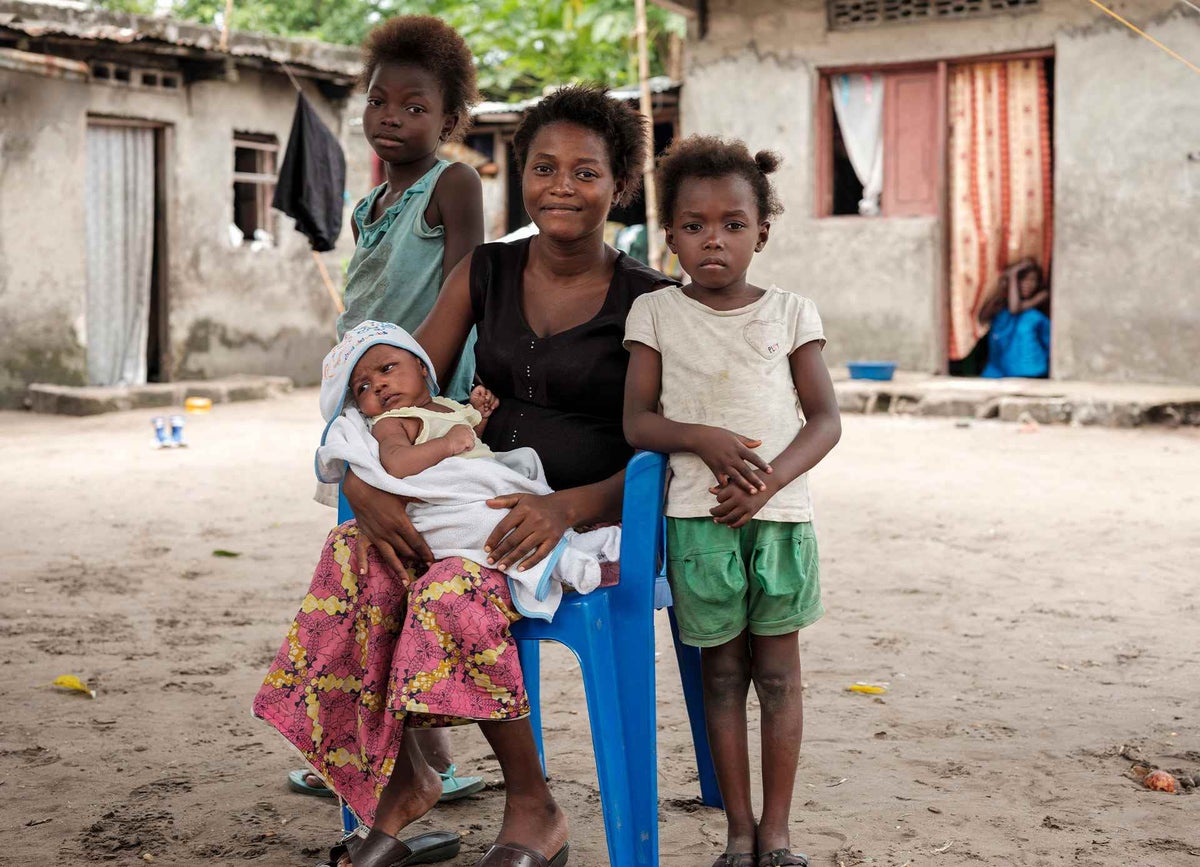
Children's health has gone backwards
Since the start of the COVID-19 pandemic, every measure of childhood health has gone backwards. It could reverse decades of progress in childhood vaccination. In 2020:
- At least 80 million children under the age of one are at risk of diseases due to routine vaccination campaign disruptions.
- An additional 6 to 7 million children may have suffered from wasting or acute malnutrition, increasing their risk of contracting deadly diseases.
Right now, COVID-19 is having a devastating impact in India where UNICEF is on the ground protecting families. But we must not forget the children in other countries who are missing out on life-saving vaccines and are in danger as a result of the pandemic.
“Even before the pandemic, there were worrying signs that we were beginning to lose ground in the fight against preventable child illness, with 20 million children already missing out on critical vaccinations,” says Henrietta Fore, UNICEF Executive Director.
“The pandemic has made a bad situation worse, causing millions more children to go unimmunised.”
“While health systems are strained by the COVID-19 pandemic, we must not allow our fight against one deadly disease to come at the expense of our fight against another.”
Donate Where the Need is Greatest
Help UNICEF to be there for children wherever the need is greatest, no matter what.
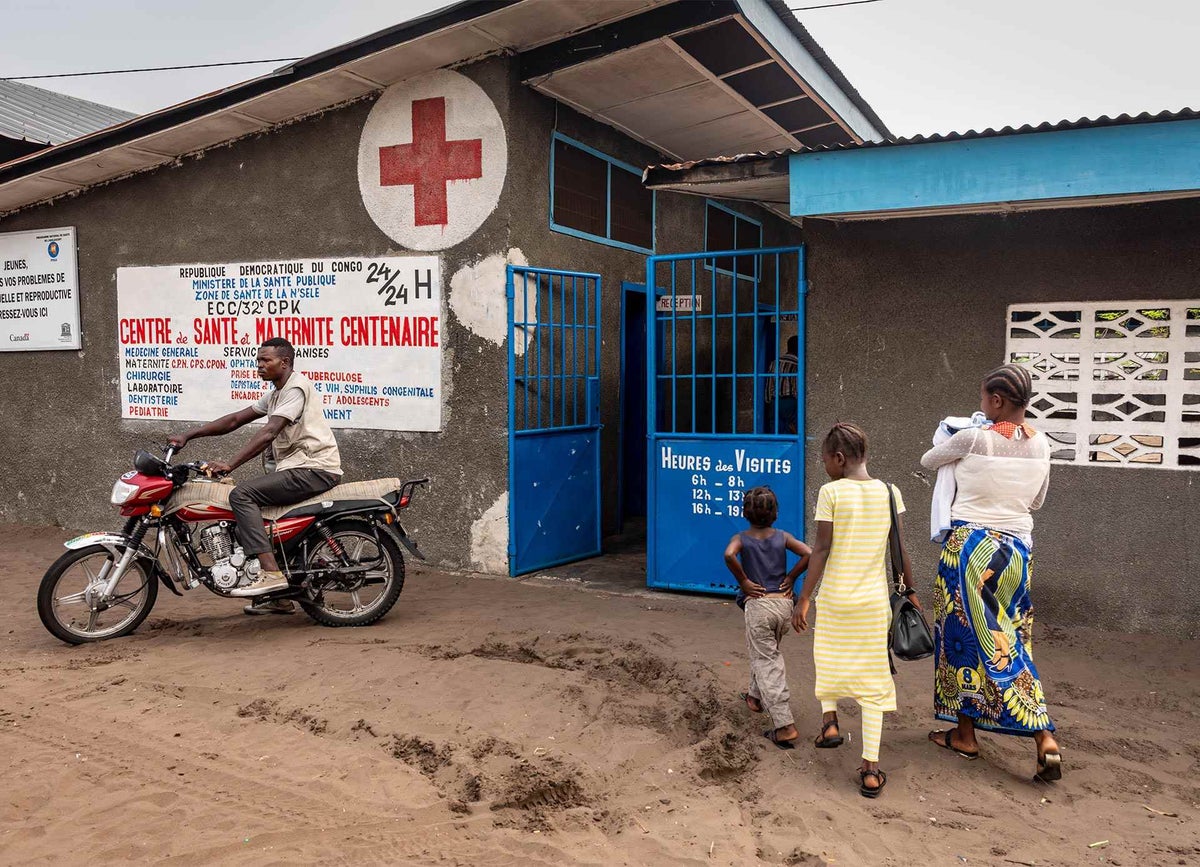
Today, Bwanga is determined to not let history repeat itself.
“I already lost two children because they were not vaccinated,” says Bwanga. “That is why I have come to vaccinate Dieu Merci (her one-month-old son) today. So disease doesn’t claim my children again.”
We’ll always find a way
With the help of your donations, each year, UNICEF vaccinates nearly half the world’s children to ensure that diseases from the past, stay in the past.
We will always find a way to protect children. No matter where they are, UNICEF’s teams will zipline across rivers, ride reindeer and even fly drones to make sure every child is given their life-saving vaccines. But we need your help to do it.
Together, we can make sure make sure COVID-19 doesn’t send children’s health backwards.
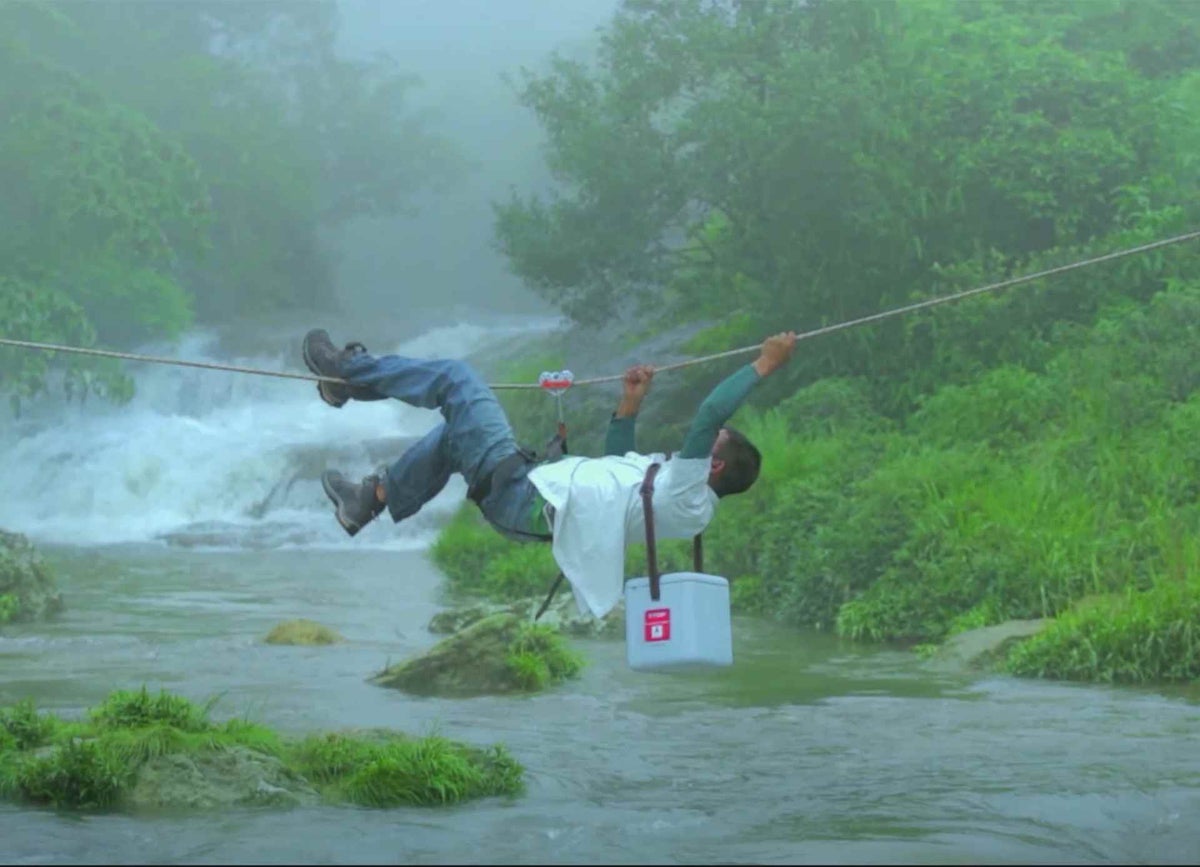
Related articles
Stay up-to-date on UNICEF's work in Australia and around the world





